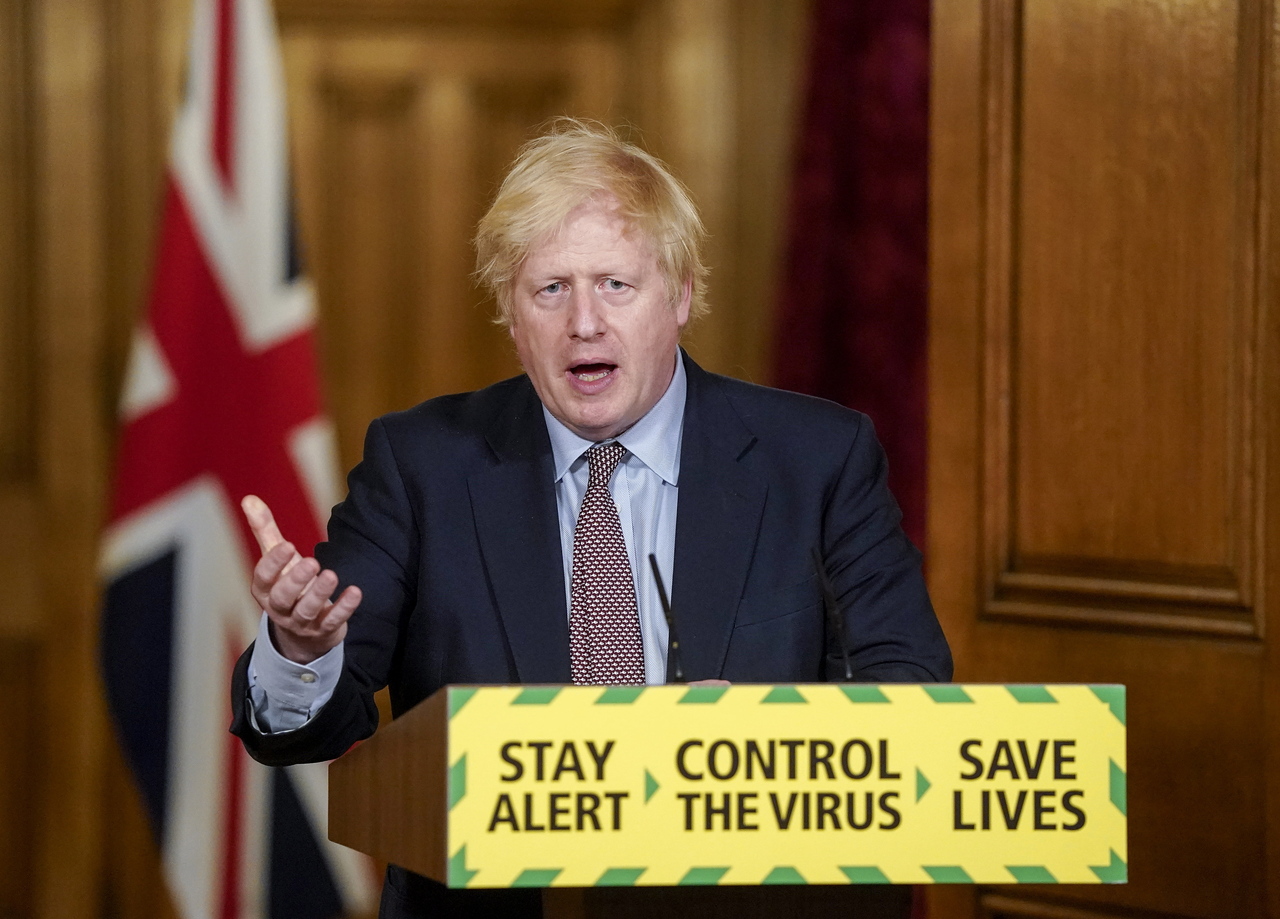Boris Johnson seeks path to reviving Britain as poll ratings slip
Sign up now: Get ST's newsletters delivered to your inbox

British Prime Minister Boris Johnson will brief cabinet ministers on June 9 on the next stage of lifting restrictions.
PHOTO: EPA-EFE
LONDON (BLOOMBERG) - British Prime Minister Boris Johnson is finalising plans to ease Britain's lockdown and rebuild the economy as he seeks to stop the haemorrhaging of support for his government's response to the coronavirus crisis.
The prime minister will brief cabinet ministers on Tuesday (June 9) on the next stage of lifting restrictions and use a speech later this month to accelerate increased spending on roads, hospitals and research, his office said. Three opinion polls at the weekend showed public confidence in his administration slipping and the gap narrowing between his Conservatives and the main opposition Labour Party.
Mr Johnson, who won a commanding majority in the House of Commons in December, will commit to spending to support the normally Labour-voting industrial regions in the north that backed him at the election. He has already said there will be no return to the austerity policies that followed the 2008 financial crisis.
Health Secretary Matt Hancock insisted there will be no "trade off" between the economy and health in a response to reports in the Sunday Times newspaper that Mr Johnson wants to speed the lifting of Britain's lockdown to stop a massive increase in unemployment.
"The worst thing for the economy would be a second spike, so there isn't this trade off that much is made of in the media between health and the economy," Mr Hancock said in an interview with Sky News. "I care deeply about getting the economy going and the best way to get the economy going is to ensure we get down the number of new infections right down."
BOTCHED RESPONSE
Britain, which passed 40,000 deaths from the coronavirus on Friday and has the second-highest number of any country in the world, has been moving to lift restrictions as Mr Johnson battles claims that his administration has botched its response to the pandemic by failing to prepare and moving too slowly to lock down the country.
The prime minister has also come under fire from lawmakers in his own Conservative Party who accuse him of being too slow to allow businesses to reopen and say the 14-day quarantine for international travellers, which came into force on Monday, will be a drag on Britain's economic recovery.
The death toll has declined under the lockdown, with 77 fatalities from the virus reported Sunday, the fewest since the start of restrictions on March 23. But there are concerns the disease is still spreading in some areas, including northwestern England.
Non-essential retailers are scheduled to reopen on June 15 and places of worship will be available for private prayer from the same day, the government said. Schools are gradually reopening and travellers on public transport have been told they will have to wear face coverings to help reduce transmission once shoppers and students increase pressure on networks.
BEER GARDENS
The hospitality industry, which has been among the hardest hit by the crisis, is working toward pubs and restaurants serving customers outside from July 4. A group of ministers is trying to push that date forward to June 22, the Financial Times reported, citing unidentified government officials.
An Opinium poll of 2,002 adults found 47 per cent now disapprove of the government's handling of the crisis, compared with 34 per cent who approve. A similar survey by the same company on March 25 found 23 per cent disapproval while 65 per cent backed the government's response.
The poll showed the gap between Mr Johnson's Conservatives and Labour at 3 points, down from a lead of 26 points in April. Polls by Survation and Deltapoll showed a similar difference, showing how quickly support for the government has soured.
Mr Hancock insisted ministers had "made the right decisions at the right time" and had been guided by scientific advice throughout the crisis.
"We have to make balanced judgements based on that evidence," he told the BBC.
PROTESTS
About one in every thousand people in Britain has the virus, Mr Hancock said, so people need to continue to be vigilant and follow the guidelines to socially distance, stay away from gatherings and not go into other people's homes.
While he said he supported the message of the Black Lives Matter protests in Britain at the weekend, he warned those involved they risked catching and spreading the disease by joining crowds.
Mr Johnson also encouraged protesters to keep their distance and hit out at those who attacked police and damaged property, including tearing down the statue of slave trader Edward Colston and throwing it in the harbour in Bristol, southwest England.
"People have a right to protest peacefully and while observing social distancing but they have no right to attack the police," Mr Johnson wrote on Twitter. "These demonstrations have been subverted by thuggery - and they are a betrayal of the cause they purport to serve. Those responsible will be held to account."


